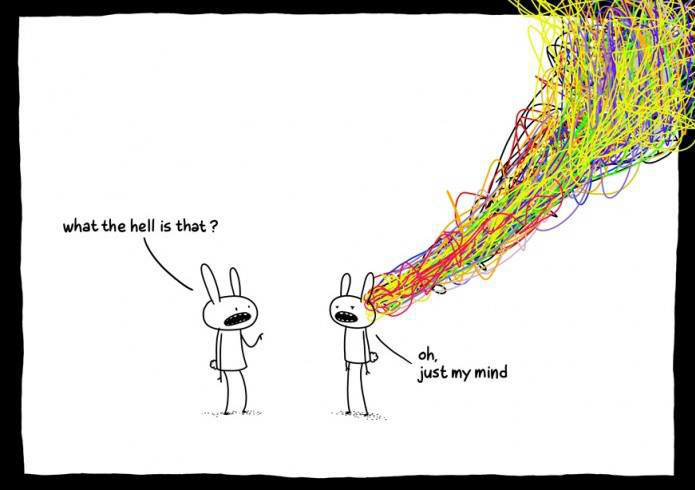When painful situations or events occur in our lives, it is normal to experience negative thoughts and negative self-talk. However, how we deal with these negative thought patterns makes all the difference in our lives, mentally, emotionally, and physically. Therefore, illogical negative thoughts or thinking patterns can adversely affect many areas of our lives.

Negative Self-Talk Examples
- Dwelling-
- Negative self-labeling
- Pessimism
- All or nothing thinking
- Needing others approval
- Mind readers
- Should I or Not
- It’ll get better
- Automatic negative thoughts
- Disqualifying Our positive thoughts
- Catastrophic thoughts or thinking
Dwelling-
Don’t dwell on the situation or event, especially when you have no answers or are just fixated. Instead, accept the situation or event and feel the associated emotions bubbling up. Sit and become aware of what is happening in your mind and body without judgment. Become aware that dwelling on the situation is not going to solve it.
Dwelling on everything was my pass time for most of my life. I worried about everything and self-judged myself on every level, from low self-esteem to unworthiness. It is not helping the situation or ourselves to focus on a problem we have no control over. So let go of dwelling on the issue or concern, release it, and go. When we stop resisting by dwelling on the problems, it creates space in our non-resistance for solutions to come into Mind naturally.
Negative Self Labeling-
Be aware of your self-talk and emotions and have a realistic view of yourself, balancing the positive and negative; we all have both. Examples of self-labeling are “I’m a total loser.” “My life sucks” “Why am I so stupid?” “I’m a bad person.” “I am fat.” “I totally suck.” “My life is horrible” “I’m such an idiot.”
Pessimism-
When your focus on the glass is half empty, remember it is also half full.
All or nothing thinking-
Realize that what we may think is ideally essential may not be such a big thing when you take the time to look at it objectively and from a new perspective.
Needing other’s approval-
Please realize that the only person we need approval from is ourselves.
The Mind reading-
Don’t presume you know what others think or feel because you are probably not psychic. This type of negative thinking assumes we know other people’s thoughts. However, this is often the case with self-conscious people who worry that others think badly of them. For instance, someone glares at you, and you think you know that they’re judging you, even though their anger probably has nothing to do with you. However, you are projecting your thoughts onto someone else.
Should-
Change the way you think from I should to I want to. If you suffer from this negativity, focus on your choice instead of the sense of obligation.
It’ll get better-
Stop hoping that the situation will get better in the future when you can work on the problem right now.
Automatic negative thinking-
We hold on to negative beliefs that are not even ours. We picked them up from our parents or society in general. Challenge ingrained negative thought patterns with positive ones. Ask yourself some simple questions, “Is this true to me?” “Where did I get this belief?” “Why do I feel this way?’ “Are these negative thoughts even mine?”
Disqualifying the positive-
Accept that there is good in this world and not all bad. As it is said, everything in our lives happens for a reason; we change and grow with new life experiences. The solution is somewhat apparent: When you are focused on something entirely negative, try to sit and look at it from a different perspective. You will always find the positive in it; this is always possible. For instance, even if we are going through a bad time in life, such as divorce. There will still be some positive elements: “My relationship is over, but now new exciting people are waiting for me.
Catastrophic thoughts or thinking-
Realize that the situation or event is not the end of the world. Ask yourself, “what is the worse that can happen?” Then, we can see that the worse is not as bad as we think.
Types of Negative Thoughts and Emotions
Negative thinking patterns and how to change them. According to Peter Ouspensky, a Russian Philosopher, in his book, In Search of the Miraculous, there are four primary causes of negative emotions.
- Justification
- Identification
- Inward Consideration
- Blame & Guilt
When we systematically eliminate all four causes of negative emotions from our lives, we can take the most incredible leap forward in changing our way of thinking. Once we change our way of thinking, our lives begin to change, looking forward to positive future endeavors.
Justification- Negative Thinking Patterns
Justification is when you rationalize or create a reason for your unhappiness or anger. Then, you tell stories to yourself and to anyone who will listen. Stories of how badly you were treated and how bad the other person behaves. You constantly go over the situation in your Mind, repeating why you are upset. The more you think of the person or situation, the more angry and upset you become. Sound familiar? We have all done it.
Refuse to Engage in Justification
Negative thinking patterns short-circuit your tendency toward justification and rationalization by refusing to engage in it. Your negative emotions do you no good, nor do they affect the other person or change the situation. When you use your natural tendency of justification, they are destructive to yourself and no one else. Reason and the rationalization of negativity undermine your happiness and self-confidence. As a result, you become weaker and less effective in other areas of your life.
Short-circuit your tendency towards justification and rationalization by refusing to engage in it. You have the control to do so. Stop justifying by using your Mind to think of reasons not to explain your negative emotions. Instead, use your intelligence and imagination to excuse the other person or to let go of unhappy situations. A small example: Someone has cut you off in traffic; instead of feeling angry, you say, “well, I guess he/she must be late for an appointment or work” “I better keep a better eye out next time.”
Make Excuses for Others
You can only hold one thought at a time. Care about how you feel. When you instantly start excusing the other person, you take away the energy or fuel that the negative thrives on to intensify and burn. You reset your mental control by keeping yourself calm and positive. In a bit of time, the situation falls away, and you can substitute a negative thought for positive thoughts. You rid the negative emotion, no matter what it is.
The same rule applies even with significant life problems like divorce, job loss, and investment failures. Stop telling yourself and others the negative stories of why you are angry or unhappy. Instead, make a choice, choose to make excuses for the other person or situation until the negativity dies away. Then, when that fire of negativity goes out, turn your attention to something positive.
The most important rule for success and happiness is don’t be upset or worried about the things you have no control over in the now. Likewise, don’t criticize others for something they cannot change.
Past and Future
The past and future are two time periods in life. We can choose to focus on what has happened, which is not changing the situation, or on the future possibilities, which we have some control over. Gaining control of our mindset is genuinely life-changing.
Unfortunately, the emotional energies of being upset and angry about past events are all wasted energy. Nothing good comes out of complaining about the past. Instead, people keep negative emotions alive by reliving past events. As a result, it robs them of the potential joy and excitement of future possibilities in their life.
Identification, or Attachment
Attachment or identification is the second major cause of negative emotions and happens when you take something personally or become attached to a person or thing. Your emotional involvement is vital when you have a personal attachment to something or someone you believe in or hold dear; and will negatively affect your emotions and reason. Practice detachment from any person or situation that makes you feel upset or angry. Practice dis-identification, and withdraw the emotional energy to regain your calmness and composure. It does not mean you passively accept anything that happens to you. Instead, it encourages you to use your willpower to keep your emotions and Mind under control and in check.
Therefore, we can make better decisions to resolve issues when we step back and look at the situation objectively. To become free, as soon as you detach emotionally from an object or person, you no longer want or need anything from them. You can reach the power of detachment through practice and feel the freedom.
Inward Consideration
The opinions of others are the third major cause of negative thinking and emotions. When you become overly concerned with how people treat you, you don’t receive the respect you perceive you deserve. You can become angry and feel insulted, wanting to strike back. You can experience others’ behavior towards you as an attack on your personality or character. The interpretation of other attitudes or behaviors can make you depressed or angry.
What is Negative Self Talk? Blame and Guilt
Blame is the worst influence of all; it triggers anger, resentment, envy, jealousy, and frustration; and is the biggest generator of anger. It’s considered the worst of all negative emotions. Anger is the most destructive force in the human world. Out of control, anger destroys health, relationships, families, businesses, and societies and generates wars, revolutions, and social conflict.
Many people are so preoccupied with blaming others for their problems that they lose contact with reality and look at the entire world through blame and guilt.
When problems arise, personal or public, angry people always point to someone who is to blame. The obsession with blame and anger leads to resentment and envy and often consumes the person who experiences it.
What is Positive Reframing?
Positive reframing is looking at a problem, issue, or situation that trigger our negative thinking and thought patterns, especially towards others and yourself. When we practice changing our negative thinking, we learn to look for the positive in all adverse situations or crises that arise in our life. We can learn to accept, learn lessons, pick ourselves up, and move forward with a positive outlook.
Positive reframing is not pretending everything is fine when it isn’t. It is not about stopping yourself from experiencing negative or painful thoughts and emotions. Instead, it’s about evaluating whether or not you want to believe a thought. Then, based on your decision, you can decide to support yourself instead of constantly criticizing yourself.
Reframing is key to accepting that negative thoughts exist and can have value. They can show us where we want to examine something and potentially change it, or at the very least change how we feel about it.
Pretending, denying, and trying to suppress our negative thoughts and emotions will only add more shame and self-judgment on top of our negative feelings. Therefore, holding onto self-judgment and shame, we feel bad about feeling bad! Instead, practice accepting that you are human, emphasizing the verb being. We all are a work in progress.
Effects of Negative Thinking

People who frequently engage in negative self-talk tend to be more prone to stress. As a result, this negative thinking state is primarily because their reality is altered to create an experience where they can’t reach the goals they’ve set for themselves.
Negative self-talk can affect us in some pretty damaging ways. For example, one large study found that rumination and self-blame over negative events are linked to an increased risk of mental health problems.
Depression: Focusing on negative thoughts may lead to decreased motivation and greater feelings of helplessness and depression.
Limited thinking: The more you tell yourself you are not good enough, feel unworthy, and can’t do something, the more you believe it. Some research has shown that negative self-talk can lead to a worsening of feelings of depression. If left unchecked, this can become damaging to the self.
Relationship challenges: Self-criticism makes you seem needy and insecure. You turn your negative self-talk into more general negative habits that bother others; a lack of communication and even a “playful” amount of criticism can take a toll.
Perfectionism: You begin to believe that “great” isn’t as good as “perfect” and that perfection is attainable; it is not; no one is perfect. However, individuals who strive to be high achievers tend to do better than others who strive for perfection. As a result, they are less stressed and are happy with a job well done. They don’t pick everything apart and try to zero in on what could have been better.
The Letting Go, Letting Be Meditation Course
You can learn to master your Mind and grasp these negative thoughts and emotions. Learn to let go of the things that are bogging you down. You can’t seem to get that stuff out of your head or heart.
Letting Go, Letting Be is a Meditation Course that can help you do just that. Learn to take control and get your life back.
Click the button below for more information.


Disclosure: Bear in mind that the button links above in this post are affiliate links, and if you make a purchase, I will earn a commission at no extra cost to you. Keep in mind that I link this company and its products because of their quality and the positive impact they have had on thousands of people’s lives, and not because of the commission I receive from your purchases. The decision is yours, and whether or not you decide to buy something is entirely up to you.
Source:
Brian Tracy, Change Your Thinking Change Your Life: How to Unlock Your Full Potential for Success and Achievement.
https://www.verywellmind.com/common-causes-of-depression-1066772
https://www.verywellmind.com/how-to-use-positive-self-talk-for-stress-relief-3144816
Fiske A, Wetherell JL, Gatz M. Depression in Older Adults. Annu Rev Clin Psychol. 2009;5:363-389. doi:10.1146/annurev.clinpsy.032408.153621
How to Achieve a Strong Mindset https://1111newme.com/2022/04/28/how-to-achieve-a-strong-mindset-meditation-benefits-personal-growth/

